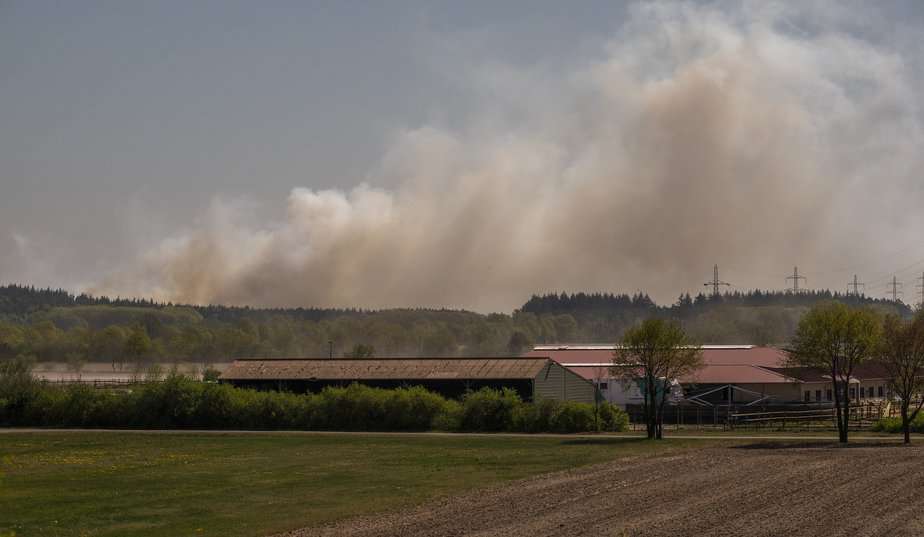
Prepare For the Worst Nature Can Throw At You
In an ever-changing world, where climate uncertainties and unexpected challenges can disrupt the regular flow of resources, being prepared for emergencies is crucial for the sustainability of agricultural operations. One of the fundamental components of emergency preparedness on a farm is the construction of a well-designed farm dam and efficient water storage systems. In this blog post, we will delve into the importance of farm dam construction, the benefits it offers to emergency preparedness, and the key considerations for creating a robust water storage solution.
The Role of Farm Dams in Emergency Preparedness
Farm dams, also known as agricultural reservoirs, play a pivotal role in supporting agricultural activities, especially during times of crises and emergencies. These artificial bodies of water are strategically designed to collect and store rainwater runoff, thus providing a vital resource for irrigation, livestock watering, and other essential farm needs. Beyond regular farm operations, farm dams can become lifelines during periods of drought, water scarcity, or unforeseen events.
Benefits of Farm Dam Construction for Emergency Preparedness
Water Resilience:
The most apparent benefit of farm dam construction is increased water resilience. During emergencies such as droughts or disruptions in water supply, a well-maintained farm dam ensures a readily available source of water, safeguarding crops, livestock, and the overall productivity of the farm.
Timely Irrigation:
In times of crisis, access to irrigation water can be a game-changer. Farm dams provide the means to irrigate crops even when external water sources are scarce or compromised, allowing farmers to maintain food production and sustenance.
Livestock Support:
Adequate water supply is vital for livestock well-being. A farm dam ensures that animals have access to clean water, reducing stress and preventing potential health issues during emergencies.
Fire Prevention and Control:
Farm dams can serve as a valuable resource for fire prevention and control. In regions prone to wildfires, a readily available water source can aid firefighting efforts, protecting both the farm and surrounding areas.
Community Support:
In times of disaster, farm dams can also contribute to the larger community by providing water for human consumption, sanitation, and emergency services.
Key Considerations for Farm Dam Construction
Site Selection:
Choosing the right location for your farm dam is critical. Consider factors such as topography, soil type, water source, and proximity to farm operations. Ensure that the dam’s placement maximizes water catchment and minimizes the risk of erosion or flooding.
Design and Engineering:
Engage professionals with expertise in dam design and engineering to ensure that your farm dam is structurally sound and compliant with regulations. Factors like dam height, spillways, and embankment stability must be carefully considered.
Permits and Regulations:
Before embarking on dam construction, familiarize yourself with local and national regulations governing water storage and dam construction. To avoid legal issues, get the required licences.
Safety Measures:
Safety should be a top priority. Implement safety features such as fencing, warning signs, and escape routes to prevent accidents and ensure the well-being of farm personnel.
Maintenance Plan:
Regular maintenance is crucial to extend the life and effectiveness of your farm dam. Clearing debris, monitoring for leaks, and inspecting the integrity of the structure are essential tasks that should be part of a comprehensive maintenance plan.
Water Management:
Implement efficient water management practices to optimize the use of stored water. This includes proper irrigation techniques, water-saving measures, and a clear understanding of water demands on the farm.
Conclusion
Farm dam construction and efficient water storage systems are invaluable components of a comprehensive emergency preparedness plan for agricultural operations. The benefits of a well-designed farm dam extend far beyond regular irrigation and livestock needs, providing a reliable water source during crises and unforeseen events.
By carefully considering site selection, design, safety measures, and ongoing maintenance, farmers can create a robust water storage solution that enhances their farm’s resilience and contributes to the well-being of their community. As the unpredictable nature of our world continues to challenge traditional farming practices, investing in farm dam construction becomes a proactive step toward securing a sustainable future for agriculture.
More reading
What Farm Dam Safety Inspections Should You Undertake Regularly?

Pingback: The Politics Of Dam Development | Big Ditch Dam Building Company
Pingback: Removing Weeds From A Farm Dam: A Comprehensive Guide | Big Ditch Dam Building Company